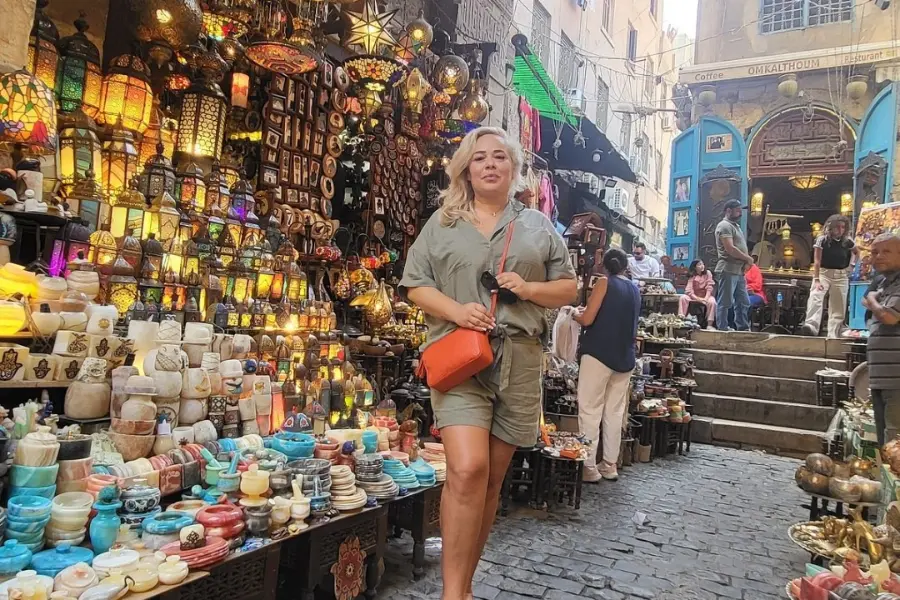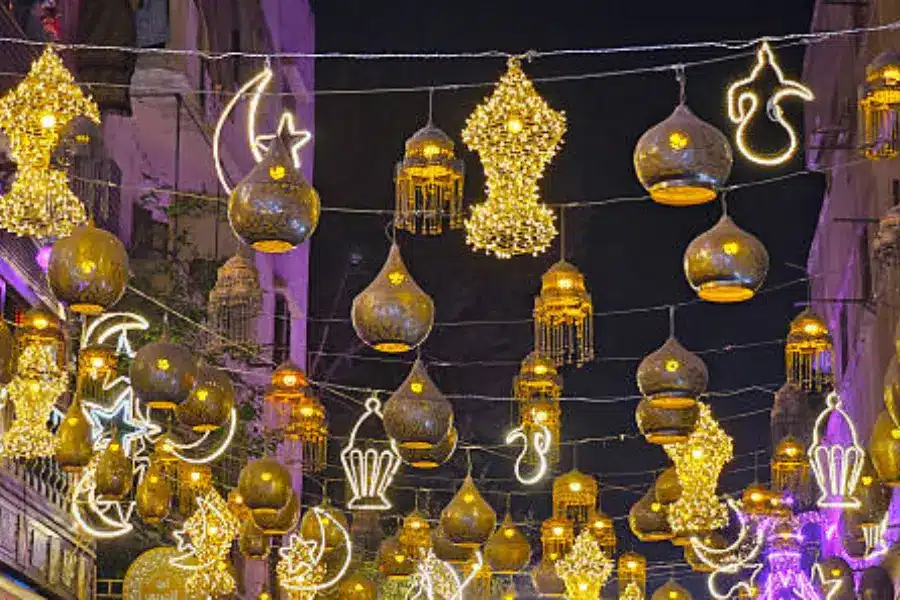Mount Sinai Egypt: Location, Trails & Spiritual History
Also known as Jebel Musa—is a rocky peak in south-central Sinai traditionally associated with the divine revelation to Prophet Moses and the Ten Commandments. Sacred to Judaism, Christianity, and Islam, Mount Sinai Egypt remains one of the world’s most important pilgrimage and hiking destinations.
If you’re wondering where Mount Sinai is located in Egypt, how high it is, or how to climb it, this guide covers location, geography, geology, religious history, trails, and practical tips—plus FAQs for quick answers.
Key Takeaways – Mount Sinai Egypt
- Location: St. Catherine, South Sinai Governorate (about 60 km from El Tur; ~200 km from Sharm El Sheikh).
- Height: 2,285 m (7,497 ft); near Mount Catherine, Egypt’s highest peak (2,629 m).
- Religious Significance: Sacred in Judaism, Christianity (St. Catherine’s Monastery), and Islam (Tur Sinai).
- Trails: Steps of Repentance (3,750 steps) & Camel Path (longer, gentler) — popular for sunrise hikes.
- Geology: Late Arabian-Nubian Shield granites and volcanics forming a dramatic, rugged massif.
What Is Mount Sinai (Jebel Musa)?
Mount Sinai, traditionally called Mount Moses, is one of Egypt’s most revered mountains. It’s widely accepted in the Abrahamic traditions as the site where Moses received the Ten Commandments. Beyond its spiritual stature, its stark granite summits and sweeping valleys make it a magnet for hikers and history lovers.
Where Is Mount Sinai Located in Egypt?
Mount Sinai (Mount Moses) lies by the city of St. Catherine in South Sinai Governorate—around 60 km (37 miles) from El Tur and nearly 200 km (124 miles) from Sharm El Sheikh. Although scholars debate the exact biblical toponyms and the Exodus route, Mount Sinai is firmly located in Egypt’s Sinai Peninsula in both religious and travel traditions.
How High Is Mount Sinai? Geography at a Glance
Mount Sinai or Jebel Musa rises to 2,285 m (7,497 ft). It sits beside Mount Catherine, Egypt’s highest peak at 2,629 m (8,625 ft). The massif belongs to the rugged ranges of Sinai; granite domes, ridgelines, and steep wadis create unforgettable viewpoints and sunrise scenes.
Geology of Mount Sinai
The rocks of Mount Sinai formed during the late stage of the Arabian-Nubian Shield. Jebel Musa exposes a circular complex of alkali granites intruded into diverse rock types, including volcanic and sub-volcanic bodies (porphyries, flows). Rock composition ranges from coarse visible granite to alkali feldspar granite—reflecting varied crystallization depths and magmatic pulses.
Religious Significance of Mount Sinai
Judaism: Traditionally identified as the site where Moses received the Ten Commandments and the Torah.
Christianity: At the mountain’s foot stands St. Catherine’s Monastery (6th century—Justinian), one of the oldest continuously inhabited Christian monasteries, renowned for its manuscript library and sacred heritage.
Islam: The Qur’an references Tur Sinai (“the Blessed Place”), where Prophet Musa (Moses) spoke with God. A small mosque stands near the summit; a Greek Orthodox chapel (1934) was built over older ruins.
Mount Sinai in the Bible
Mount Sinai in the Bible is described as the sacred mountain where Moses received the Ten Commandments from God, as recorded in the Book of Exodus. This event, central to the covenant between God and the Israelites, is one of the most defining moments in Judeo-Christian tradition.
The biblical account portrays Mount Sinai as a place of divine presence—surrounded by thunder, lightning, clouds, and the sound of the shofar (ram’s horn). These dramatic images emphasize the holiness of what is often referred to as the Biblical Mount Sinai.
Beyond the Ten Commandments, Jebel Musa in scripture symbolizes law, covenant, and moral order. Its legacy continues to influence Judaism, Christianity, and Western civilization as a whole.
Climbing Mount Sinai – Trails & Experience
There are two classic routes to climb Mount Sinaito to the summit:
- Steps of Repentance (Siket Sayyidna Musa) — 3,750 stone steps rising steeply behind the monastery; short, intense ascent.
- Camel Path (Sikkat al-Bashit) — longer, more gradual switchbacks; popular for night hikes and camel support. Typical ascent 2–3 hours.
Many visitors join guided Mount Sinai Egypt tours combining the summit with St. Catherine’s Monastery and a sunrise or sunset experience.
Comparison of Mount Sinai Trails
| Trail | Difficulty | Duration | Highlights |
|---|---|---|---|
| Steps of Repentance | Hard/Steep | ~1.5–2.5 hrs up | 3,750 historic steps, direct ascent, spiritual atmosphere |
| Camel Path | Moderate/Gentle | ~2–3 hrs up | Switchbacks, wider track, option to ride camel part-way |
Mount Sinai Tickets, Hiking Hours & Best Time to Visit
Hiking Hours
- Night/Pre-dawn ascents are popular to catch the sunrise (bring warm layers; temperatures drop at elevation).
- Daytime ascents are possible outside peak heat; avoid midday in summer.
Tickets & Access
- Site access typically collected at St. Catherine area checkpoints.
- Guides are recommended for night hikes and first-timers.
Best Time to Visit
- October–April: cooler, clearer—ideal for hiking.
- Arrive very early (or hike at night) for fewer crowds and better light.
Modern Era & Pilgrimage
Following 20th-century geopolitical changes, Mount Sinai returned to Egyptian administration in 1979. Today it welcomes pilgrims and travelers worldwide; the St. Catherine community continues monastic traditions while local Bedouin support trekking and guiding.
Mount Sinai vs Mount Catherine – Which to Climb?
Mount Sinai (Jebel Musa) is Egypt’s spiritual peak, renowned for its religious heritage and sunrise hikes. By contrast, Mount Catherine is the country’s highest mountain (2,629 m) and appeals to hikers seeking tougher treks and panoramic views across the Sinai range.
| Feature | Mount Sinai | Mount Catherine |
|---|---|---|
| Height | 2,285 m | 2,629 m (highest in Egypt) |
| Significance | Sacred in Judaism, Christianity & Islam | Scenic & challenging, less religious heritage |
| Hiking | 2–3 hrs, accessible trails (Camel Path & Steps) | 5–7 hrs, strenuous, requires good fitness |
| Best For | Pilgrims, cultural travelers, sunrise seekers | Adventure hikers, panoramic photographers |
Many visitors choose Mount Sinai for its spiritual atmosphere, while experienced trekkers often add Mount Catherine for Egypt’s highest summit views.
FAQs – Mount Sinai Egypt
Where is Mount Sinai located in Egypt?
Mount Sinai is located near the city of St. Catherine in South Sinai, Egypt. It lies around 60 km from El Tur and about 200 km from Sharm El Sheikh, making it accessible for day trips or overnight pilgrimages.
Is Mount Sinai in Egypt or Saudi Arabia?
Although some alternative theories exist, Mount Sinai is widely recognized as being in Egypt’s Sinai Peninsula. Religious tradition, archaeological studies, and centuries of pilgrimage identify the site near St. Catherine as the biblical Mount Sinai.
How high is Mount Sinai?
Mount Sinai rises to 2,285 meters (7,497 feet) above sea level. While not the tallest mountain in Egypt—that title belongs to nearby Mount Catherine—it is one of the country’s most famous peaks due to its spiritual and historical importance.
Can you climb Mount Sinai without a guide?
Yes, independent hikers often climb Mount Sinai without a guide. However, hiring a local Bedouin guide is strongly recommended, especially for night ascents, safety, and to learn about the mountain’s history and traditions.
Which route is better: Steps of Repentance or Camel Path?
The Steps of Repentance are faster but steep, with over 3,700 stone steps leading directly to the summit. The Camel Path is longer and gentler, suitable for most visitors, with the option to ride part of the way. Many hikers ascend via the Camel Path and descend using the Steps.
Plan Your Mount Sinai Experience
Experience the spiritual journey of Mount Sinai Egypt, with a sunrise, sunset, or starry night hike, and don’t miss the chance to visit St. Catherine’s Monastery. Discover our hand-picked Egypt day tours, browse inspiring tour packages, or tailor your own Mount Sinai trip for an unforgettable adventure.









